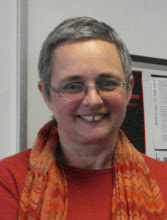A Midsummer Night's Dream
Today we are in the middle of a group:
This four day group is wonderful training on so many dimensions. The interplay of personal reactions, group processes and dynamics and the subject matter... Even our dreams seem to reflect the themes of the drama. We are all mirrors for one another, yet each locked in our individual world of perceptions. Feelings flow, are amplified, get expressed or not. For the trainee therapist the process hones the ability to flow with and yet be separate the other, to observe the subtle nuances of reactivity and to join in the dance, observing the fields of persnalprocess, other process, group process, visual, verbal and action based. It is a growing into awareness, not a cognitive learning process. Indeed, the complexity of the group confounds the individual learning outcome and confuses the over grasping mind into submission and wonderment.
In A Midsummer Nights Dream, Shakespeare explores a number of themes dear to Buddhist psychology: the inter-relation between perception and passion, the magical quality of irrational desire, the search for meaning through attachment to suitable and unsuitable relationships that then govern our lives, and the uncertainty of the boundaries between dream, drama and reality. The phenomenon of infatuation involves an experience of being under the spell of a mesmerising object. This is an apt description of the conditioning factor that Buddha called avidya to which he attributed "the arising of all this mass of woe". The resulting complexities turn life into theatre within theatre – a favourite Shakespearian motif. It is not difficult to equate the mischief played by the play's fairies with the dynamic blind passion exposed by Buddhist psychology, nor equate the night in the woods passed by Shakespeare's characters with the samsara of Buddhist theory, at the end of which one wonders whether or not it was all a dream. On this workshop we will, with the aid of psychodrama, improvisation and expressive therapy methods, employ the bard's plots and devices to bring these fundamental themes to life and explore some of our own labyrinths of perception, folly and awakening. This workshop is the latest in our on-going series of "myth workshops" in which we have used a theme from legend to enhance personal growth, explore psychological principles, and further therapeutic skills. It will be useful, though not essential, for participants to familiarise themselves with the play in advance of the course.
This four day group is wonderful training on so many dimensions. The interplay of personal reactions, group processes and dynamics and the subject matter... Even our dreams seem to reflect the themes of the drama. We are all mirrors for one another, yet each locked in our individual world of perceptions. Feelings flow, are amplified, get expressed or not. For the trainee therapist the process hones the ability to flow with and yet be separate the other, to observe the subtle nuances of reactivity and to join in the dance, observing the fields of persnalprocess, other process, group process, visual, verbal and action based. It is a growing into awareness, not a cognitive learning process. Indeed, the complexity of the group confounds the individual learning outcome and confuses the over grasping mind into submission and wonderment.



0 Comments:
Post a Comment
<< Home